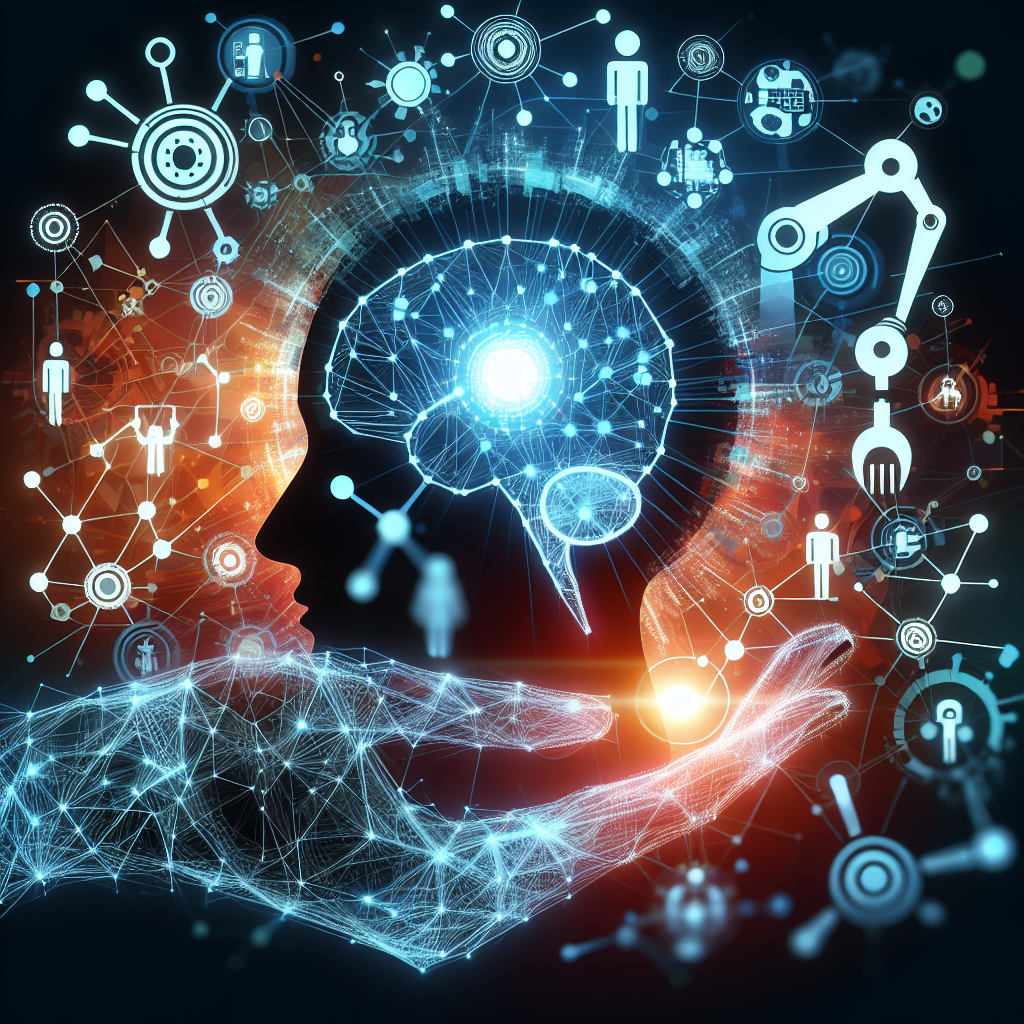AGI in Action: Real-World Applications of Artificial General Intelligence
Artificial General Intelligence (AGI) is a type of artificial intelligence that is capable of understanding and learning any intellectual task that a human being can. AGI systems possess the ability to apply their intelligence to a wide range of tasks and perform them at a level that matches or exceeds human capabilities. While AGI is still a developing field, there are already several real-world applications of AGI that are beginning to revolutionize industries and enhance human productivity.
In this article, we will explore some of the most exciting and impactful applications of AGI that are currently in use or being developed. From healthcare to finance to transportation, AGI is poised to transform the way we live and work in the coming years.
Healthcare
One of the most promising applications of AGI is in the field of healthcare. AGI systems have the potential to revolutionize medical diagnosis and treatment by analyzing vast amounts of patient data and medical literature to identify patterns and make accurate predictions. For example, AGI-powered systems can help doctors diagnose diseases earlier, recommend personalized treatment plans, and even assist in surgery.
One notable example of AGI in healthcare is IBM’s Watson for Oncology, which uses natural language processing and machine learning algorithms to analyze patient data and medical literature to provide personalized treatment options for cancer patients. Another example is Google’s DeepMind Health, which is using AGI to assist in the diagnosis and treatment of eye diseases such as diabetic retinopathy.
Finance
In the finance industry, AGI is being used to improve investment strategies, detect fraud, and optimize trading algorithms. AGI-powered systems can analyze vast amounts of financial data in real-time to identify trends and make predictions about market movements. For example, hedge funds are using AGI to develop trading algorithms that can adapt to changing market conditions and make more accurate predictions.
Another application of AGI in finance is in the area of risk management. AGI systems can analyze complex financial data to identify potential risks and recommend strategies to mitigate them. This can help financial institutions better protect their assets and reduce the likelihood of financial crises.
Transportation
AGI is also making waves in the transportation industry, where it is being used to develop autonomous vehicles and improve traffic management systems. AGI-powered vehicles can analyze real-time traffic data, make split-second decisions, and navigate complex environments with precision. Companies like Tesla, Waymo, and Uber are all investing heavily in AGI to develop self-driving cars that can safely navigate city streets and highways.
In addition to autonomous vehicles, AGI is also being used to optimize transportation networks and reduce congestion. Traffic management systems powered by AGI can analyze traffic patterns, predict bottlenecks, and recommend alternative routes to improve efficiency and reduce travel times.
Other Applications
In addition to healthcare, finance, and transportation, AGI is being used in a wide range of other industries and applications. For example, AGI is being used in agriculture to optimize crop yields and reduce waste. AGI-powered systems can analyze soil conditions, weather patterns, and crop data to recommend optimal planting and harvesting schedules.
AGI is also being used in the entertainment industry to create more realistic and immersive experiences. AGI-powered systems can generate lifelike characters, environments, and storylines for movies, video games, and virtual reality experiences. Companies like Disney, Netflix, and Epic Games are all using AGI to enhance the entertainment experience for their audiences.
FAQs
Q: What is the difference between AGI and narrow AI?
A: AGI is a type of artificial intelligence that is capable of understanding and learning any intellectual task that a human can, while narrow AI is designed for specific tasks or domains. AGI systems possess the ability to apply their intelligence to a wide range of tasks and perform them at a level that matches or exceeds human capabilities.
Q: How can AGI benefit society?
A: AGI has the potential to revolutionize industries and enhance human productivity in a wide range of applications, from healthcare to finance to transportation. AGI-powered systems can analyze vast amounts of data, make accurate predictions, and recommend optimal strategies to improve efficiency and reduce costs.
Q: What are the ethical implications of AGI?
A: As AGI becomes more prevalent in society, there are concerns about the ethical implications of AI systems making decisions that affect human lives. It is important for developers and policymakers to consider the ethical implications of AGI and ensure that AI systems are designed and used responsibly.
In conclusion, AGI is poised to revolutionize industries and enhance human productivity in a wide range of applications. From healthcare to finance to transportation, AGI-powered systems are already making a significant impact on our daily lives. As AGI continues to develop and mature, we can expect to see even more exciting and impactful applications in the years to come.

